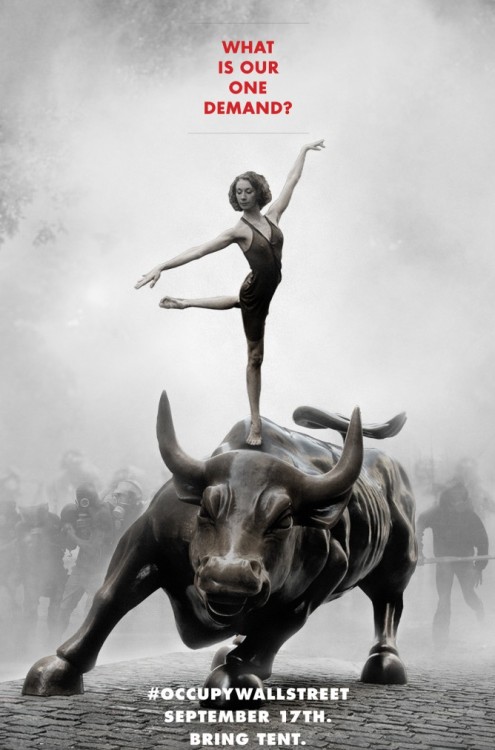The movement at this stage defies simple characterizations.*
The Occupy movement has already had an impact on the state of contemporary debate. They have demonstrated that there need not be an obligation to come with a singular unifying message or solution in order to legitimately voice dissatisfaction as injustice and inequity. It is not a contradiction to have concerns but not all the answers. Recall, after all, these are complex social problems, which defy simple solutions. Indeed any such demand for coherent messages and solutions plays into the status quo, reproduces familiar debates and stifles the potential for innovative thinking.

Increasing numbers of commentators (here, here, here, here and here) are recognizing that this lack of a unifying – but inevitably simplistic – message is in fact the strength of the Occupy movement. The call for messages is divisive and too definitive. It is essentially saying ‘give me something that I can agree with or disagree with, I want to know’. Politics needn’t be about simplistic sound-bites. The Occupy movement seeks to stimulate debates and ideas. The Occupy sites are spaces where discussions that are not occurring within the divisive (yet somehow still often partisan?) party politics can take place. Why must the binary of agreement and disagreement be seen as definitive positions? The formation of ideas and ethical positions are an ongoing process. Differences in political persuasion should not preclude a common ethics forming in relation to certain issues.
In this regard the lack of a singular message has also allowed a range of unholy (and holy!) alliances to form. Recently Eddie McGuire, former Channel Nine CEO and very much the public face of that Murdoch stable, offered back-handed support to Occupy Melbourne and suggested that maybe it was time for us to ‘take a good look at’ contemporary business practices.
Our politicians, instead of fighting for their own jobs, need to start building some sustainable industries for the unskilled Aussie workers as our manufacturing industry blows off the map.
Such a statement appeals not only to the ethos of the Occupy movement but equally to the sentiment of the much larger parochial working class in this country. The Occupy movement is not the sentiment of class warfare, in fact it offers a common grounds for reconciling the notional divide between the ‘latte left’ and the ‘Aussie battler’, two of the opposing factions in Australia’s cultural wars. This alone is worthy of praise.
If there is a uniting general ethos of the Occupy movement perhaps it is a desire to speak out against deep social injustice and to try foster a sense of care and generosity towards others. That such sentiment is readily dismissed as unrealistic is grounds alone for trying to maintain a space where such moments of human passion, however fleeting, can exist.
This is part of a series of posts on the Occupy movement.







Crikey is committed to hosting lively discussions. Help us keep the conversation useful, interesting and welcoming. We aim to publish comments quickly in the interest of promoting robust conversation, but we’re a small team and we deploy filters to protect against legal risk. Occasionally your comment may be held up while we review, but we’re working as fast as we can to keep the conversation rolling.
The Crikey comment section is members-only content. Please subscribe to leave a comment.
The Crikey comment section is members-only content. Please login to leave a comment.